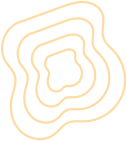Application and Document Submission
Fill the application form and submit/post it to any ISBM centre. Include attested photocopies of mark sheets, two latest photographs, and work experience certificate(s).
The Diploma in Software Engineering provides students with comprehensive training in the principles and practices of software development. The curriculum includes topics such as software design, programming, testing, and project management. Students gain hands-on experience in developing software applications through practical projects, fostering their ability to work effectively in teams and manage the software development life cycle. This program emphasizes both technical skills and soft skills, preparing graduates for diverse roles in the software industry.
By engaging in real-world projects and internships, students build a portfolio that showcases their abilities to potential employers. The Diploma in Software Engineering aims to equip graduates with the necessary skills to thrive in a fast-paced technological landscape and contribute to the development of innovative software solutions.




Equip students with proficiency in key programming languages and software development tools.
Provide knowledge of the phases involved in developing software applications.
Teach effective testing methodologies to ensure software quality and reliability.
Instill an understanding of project management principles applicable to software projects.
Foster teamwork and communication skills necessary for successful project delivery.
Instill a commitment to staying current with emerging technologies and development practices.


Assists in the design and development of software applications.
Conducts testing to ensure software functionality and performance meet requirements.
Provides support and troubleshooting for software applications.
Analyzes and improves existing software applications to meet user needs.
Creates and maintains web applications, focusing on front-end and back-end development.
Advises organizations on software solutions and best practices in software development.







The Indian School of Technology and Management (ISTM) is committed to empowering students with the knowledge, skills, and industry insights required to excel in today’s competitive business environment. We offer flexible correspondence management courses that provide a perfect blend of theoretical knowledge and real-world case studies, enabling students to gain practical, applicable skills for their careers.











